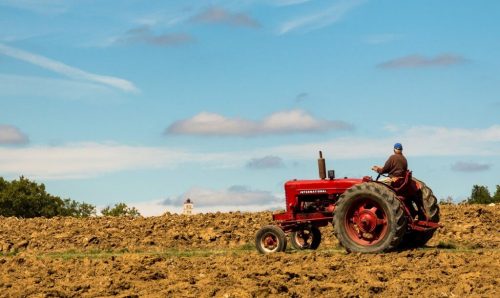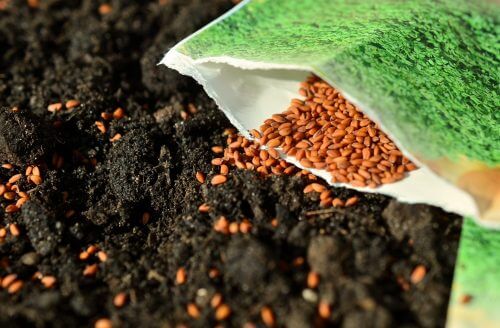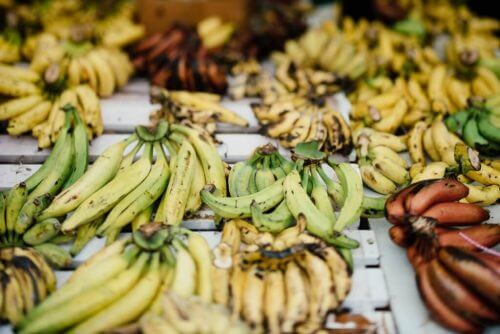Is our diet based on too limited a variety of edible plant species? An intriguing international initiative seeks to reopen the seed market and increase our food supply

By Avi Ohion, Angle, Science and Environment News Agency
Throughout most of the years of mankind's existence, millions of farmers grew food crops mainly for their own consumption or at most for the consumption of their immediate surroundings: the village or the town. Today, however, a few giant corporations control 60 percent of the world's commercial seed supply. This process is one of the reasons why the United States has lost 80 percent of its fruit and vegetable seed diversity in the last 95 years, and why the number of food crop varieties has decreased worldwide by 75 percent.
This story may hurt each and every one of us: one of the results of the lack of diversity in seeds is a serious danger to food security. The seeds currently used by most farmers in the world are suitable for the current climate conditions, but may not be suitable for other conditions. Therefore, in the quite probable case of significant climate changes, we may - in addition to other troubles - also face a food crisis of historic proportions.
Seed exchange events
The Center for Food Security (Center for Food Safety) seeks to enable more people to participate in the effort to maintain seed diversity. To combat the depletion of seed diversity, local farmers try to grow and save seeds that are suitable for certain regions, conditions and climates and can be pollinated and distributed for future generations. The center established a global peer network named Global Seed Network Intended for farmers, home gardeners, non-profit organizations and basically the public as a whole. All of these can exchange disease-resistant seeds, suitable for the specific soil conditions they cultivate.
The network allows its users, plant and seed enthusiasts, to create personal profiles for themselves with details such as geographic location, growing conditions, climate, soil and personal experience in growing seeds. These users can post details about seeds they want to share, view requests for seeds from other members of the network, share information and conduct conversations in forums. The network also offers a search engine that can be entered with specific agricultural criteria to reach the desired seed.
As the barriers to the small farmer become greater, the importance of expanding free access to seeds increases. This is exactly what the global network is for, which is an open source platform designed to empower individuals and groups. The goal is to achieve independence in the supply of seeds, and eliminate dependence on the giant corporations.

The network also offers guidelines on how to save seeds, and a calendar of seed exchange events. Home farmers can learn in it how to collect seeds from their private garden as well as receive information about laws and regulations regarding seed importation.
In Israel it works The Garden Bank for Eretz Israel Plants, whose activity is currently focused on collecting and preserving a population of wild plants with economic-agricultural and cultural potential as well as collecting and rescuing rare or endangered wild plants.
Problems in the banana market
"Even if today we do not use all the genetic diversity, we may find ourselves one day needing it," says Dr. Shay Fleishon, an expert in agricultural biotechnology. "One can, for example, think of the example of ug99: A virulent strain of fungi that causes wilt disease in wheat, discovered in Uganda in 1998. Hardly any varieties of wheat that can be resistant to it have been found and those that are resistant are not of great agricultural importance. Fortunately, so far no large-scale outbreak of it has occurred, but if it spreads (due to climatic changes, for example, or due to the transfer of goods between different places in the world) a disaster could happen."
"Such things can happen, and have already happened in the past," warns Fleishon. "Until about seventy years ago, for example, almost all the bananas eaten around the world were of a named variety Gross Michel, which were completely different from the bananas we eat today, which are of the Cavendish variety. Most of the Gros Michel bananas died because of a disease that killed them all. If this were to happen in wheat or corn, it could lead to serious problems in the global food supply. It is important to remember that today 60 percent of the world's caloric supply relies on just four plant species: wheat, corn, rice and barley. Woe to us if even one of them gets hurt."

Saving seed species and seed exchange is not a new idea, but it has been given new life thanks to the global peer network and gives hope for more durability in the future. "It is important to maintain nutritional diversity," Fleishon explains. "For this purpose, varieties must be produced that are resistant to diseases or the harms of climatic changes, such as dehydration and an increase in the salinity of soils, for example." According to Fleischon, this process should be carried out as it has been done throughout history, by using the existing genetic variation. "Fortunately for us today, this variety can be greatly expanded, especially through the use of genes from other species or synthetic genes through genetic engineering," he says. "In Israel there are those who are trying to promote the matter. For example, at the Volcani Institute they managed to produce virus-resistant tomatoes with the help of genetic engineering. We should hope that these crops will reach the market one day, but for now it hardly happens."
Intimidation and regulation
"Complex, long and very expensive regulation leads to a huge entry cost to the market and almost does not allow genetically modified varieties to reach the market other than through corporations, only they can meet the costs of that regulation," says Fleishon. "Today there are hundreds or even thousands of revolutionary agricultural varieties with properties that include disease resistance and improved agricultural properties, including varieties developed by small and medium-sized companies and even by public research bodies. Some are even found free for farmers, such as the golden rice for small farmers, and cassava resistant to the cassava mosaic virus. Today, the heavy regulation prevents them from reaching the field. It is difficult to extend how much human life could have improved if the opponents were more open to studying the issue in depth."
It seems that climate change may leave us with no choice and require a shift to varieties that are more resistant to diseases, which will spread outside their current distribution areas, and to harsh climatic conditions whose incidence is expected to increase. Therefore, it is important to maintain and even increase the genetic diversity of the seeds on which modern agriculture depends to ensure a stable and safe nutritional future for the world's population, which in 2050 is expected to reach 10 billion people.

3 תגובות
a quote:
"Most of the Gros Michel bananas died because of a disease that killed them all."
A very confusing sentence.
A list is only important if:
Again and again and again, the writers of "Azula" are wrong and confuse gender with "breed"
Too bad
The preferred and safe option is to stay within the limits of evolution and not use genetically modified species. But if we want to sustain a world of 10 billion people then there is simply no other choice and we will have to use genetic engineering. In my opinion, the option of planning a birth is better because we are already seeing the ecological systems around us collapsing.